News
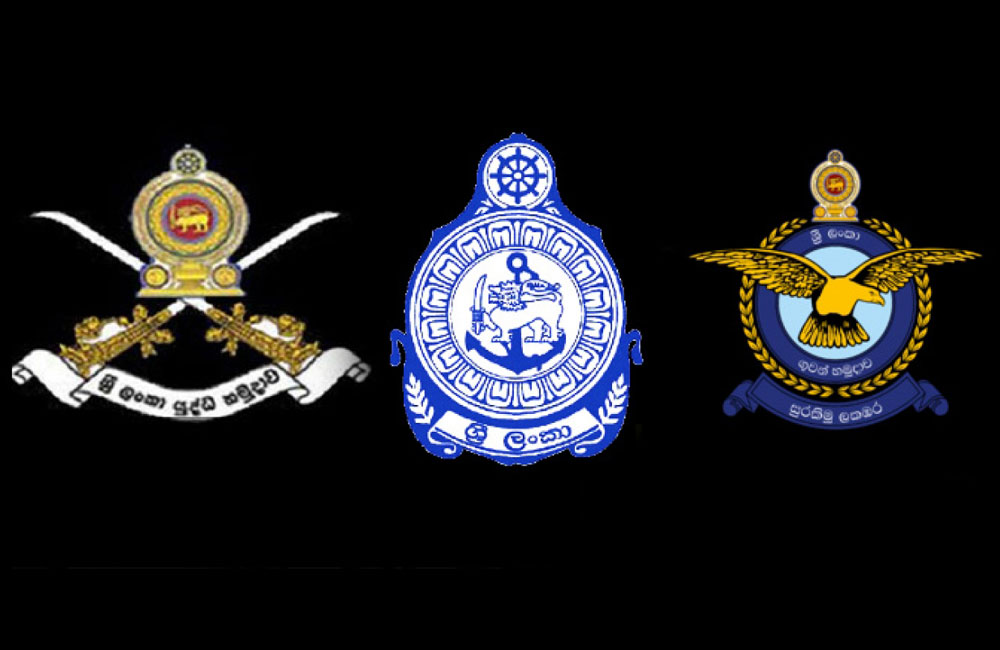
Finance Minister increases allowances paid to Tri Services personnel
The ration and other allowances paid to all officers and other ranks in the Tri – Services have been increased by the government, the Ministry of Finance said today.
Some of these allowances had not been increased for over the last 20 years.
Finance Minister Mangala Samaraweera via Budget 2019 had proposed to increase the uniform allowance, rental allowance, the good performance allowance and the commando allowance of the armed forces.
Accordingly, the monthly ration allowance paid to the officers of the Tri-Forces has been increased up to Rs. 23,231 and of other ranks up to Rs 19,350 with effect from January 2019.
The General Treasury last week granted its approval for the increase of the ration allowance following the calculation made by the Department of Census and Statistical on the list of goods included in the ration by the Sri Lanka Army.
In the meantime, the following allowances will be increased from the July 01,2019.
- The rental allowance paid to all Tri Services personnel will be increased by 100 percent.
- The Commando allowance, which is applicable to equal ranks in the Sri Lanka Navy and the Air force too will be increased from Rs 1000.00 to Rs 5000.00 per month.
Furthermore, the Good Conduct allowance and the uniform up keeping allowance too will be increased by a substantial percentage. The Management Services Circular No 02 0f 2019, in this regard, was issued by the Treasury on May 21, to the relevant authorities.
Fake news rampant after Sri Lanka attacks
Sri Lankan social networks saw a surge in fake news after the Easter suicide bombings a month ago despite an official social media blackout, highlighting the inability of governments to contain disinformation, experts said.
A nine-day ban on platforms including Facebook, Twitter, YouTube, Instagram and WhatsApp was introduced following the Islamic State-claimed attacks on churches and hotels on April 21 which killed 258 people and wounded nearly 500.
Many anxious social media users switched to virtual private networks (VPNs) or the TOR network to bypass the order and keep communication open with friends and relatives as the extent of the carnage became clear.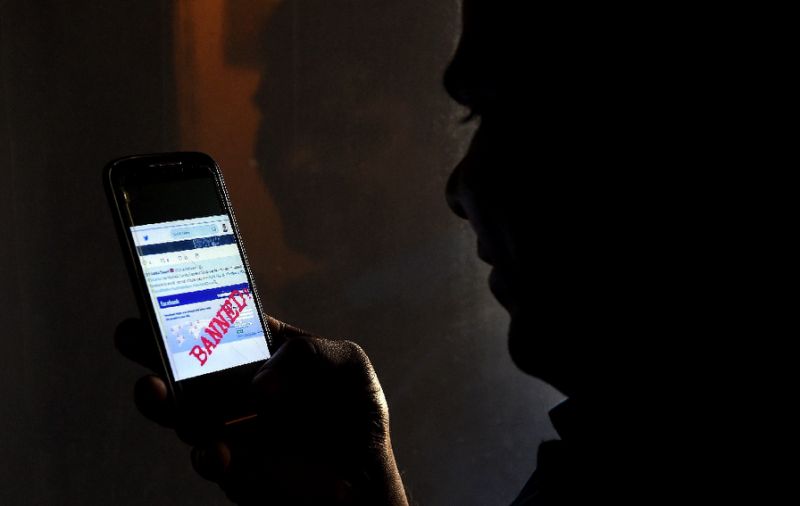 Authorities in Sri Lanka have banned Facebook in the past in a bid to prevent hardliners from using social media to ignite violence (AFP Photo/ISHARA S. KODIKARA)
Authorities in Sri Lanka have banned Facebook in the past in a bid to prevent hardliners from using social media to ignite violence (AFP Photo/ISHARA S. KODIKARA)
But for others, the tools were a means to spread confusion and vitriol as the island struggled to come to terms with one of the worst terror attacks in its history.
Sanjana Hattotuwa, who monitors social media for fake news at the Centre for Policy Alternatives in Colombo, said the government blackout had failed to prevent "engagement, production, sharing and discussion of Facebook content", and that he had seen a significant increase in false reports.
Old coffins
AFP has published half a dozen fact-checks debunking false claims made on Facebook and Twitter after the Easter attacks.
Some had dug out photos of coffins and funerals from Sri Lanka's brutal decades-long civil war and claimed they showed victims of the blasts.
One video posted to Facebook showed police arresting a man dressed in a burqa and claimed he was involved in the bombings. The video was actually from 2018, and showed a man who had used a burqa to hide his identity while he sought to attack someone over a debt issue.
Another used a five-year-old photo from India that showed a group of men wearing T-shirts with "ISIS", another name for Islamic State, written on them to claim there was an active IS cell in eastern Sri Lanka.
One Twitter user claiming to be a high-ranking Sri Lankan army brigadier used the platform to accuse neighbouring India of being involved in the attacks. The account was later taken down by Twitter after the Sri Lankan army complained.
Authorities in Sri Lanka -- where ethnic divisions still linger after decades of war -- previously blocked Facebook in March 2018 after Buddhist hardliners used incendiary posts to fan religious violence that left three people dead and reduced several hundred homes and shops to ashes.
The surge in fake news has further blemished the troubled reputation of social media -- which several years ago had been seen as a means to expand freedom of information -- in the region.
In India, authorities have temporarily shut down mobile networks or blocked social media apps during riots, while critics say the spread of hate speech via Facebook was crucial in facilitating a brutal 2017 military crackdown on the Rohingya Muslim minority in Myanmar.
Since the attacks, Sri Lankan authorities have imposed other short bans on social media, including earlier this month after mobs in the northwestern town of Chilaw attacked Muslim-owned businesses in anger at a Facebook post by a shopkeeper.
No answer
But for those unaware of the government ban or unable to circumvent it, the blocking of social media in the days following the attacks was a cause for panic.
A Sydney-based engineer was desperate to call his sister in Colombo soon after hearing about the Easter blasts, but could not get through.
"I kept calling her on WhatsApp, but there was no reply. We are so used to calling on WhatsApp, I had forgotten her landline number," the Sri Lankan-born engineer said.
Fortunately, he said, he managed to call a friend in Colombo who was using a VPN to access WhatsApp and told him about the social media ban that prevented him from reaching his sister.

Parliamentary Select Committee to investigate Easter attacks
The motion, signed by MPs from all parties represented in Parliament was approved unanimously. The Speaker will nominate members to the committee and its Chairperson. The committee will consist of a maximum of 12 members.
The committee will be tasked with investigating and reporting back to Parliament whether the law enforcement authorities possessed prior intelligence relating to the attacks; whether there were deficiencies in the State machinery that led to the inability to prevent such attacks or mitigate their effects; whether any other factors contributed to such terrorist attacks; what action should be taken to prevent such attacks in the future; and any other matters connected or incidental thereto.
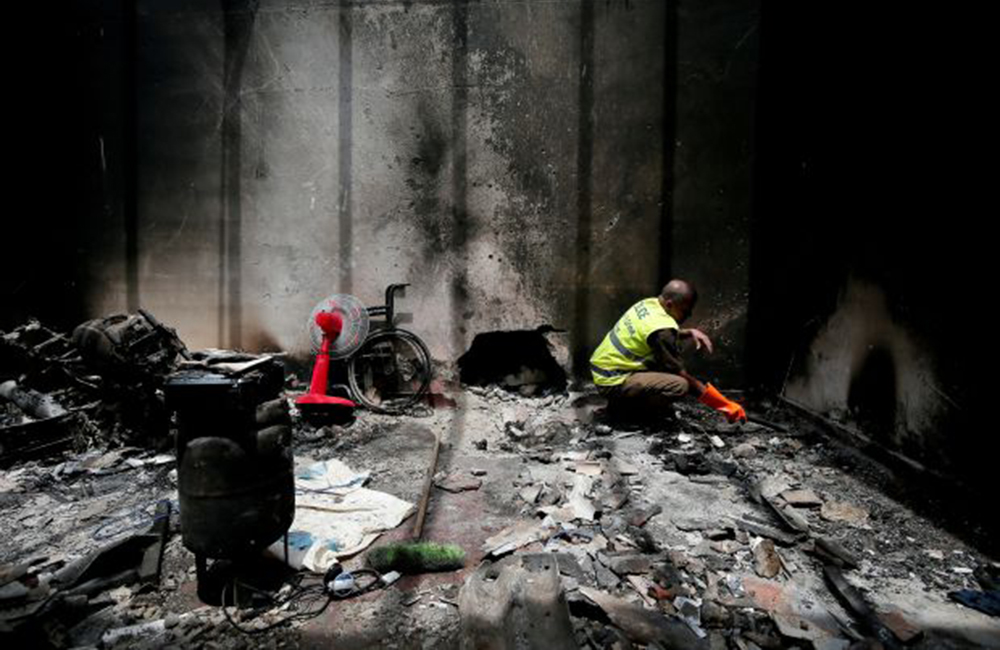
'Mother of Satan': Investigators say bombs show foreign hand in Sri Lanka attacks
One month after the Sri Lanka suicide attacks that killed more than 250 people, investigators have told AFP the bombers used "Mother of Satan" explosives favoured by the Islamic State group that are a new sign of foreign involvement.
Detectives said the back-pack bombs used in the April 21 attacks on three churches and three hotels were manufactured by local jihadists with Islamic State expertise.
They named the explosive as triacetone triperoxide, or TATP, an unstable but easily made mixture favoured by Islamic State militants who call it "Mother of Satan".
It was also used in the 2015 attacks in Paris, by a suicide bomber who hit the Manchester Arena in England in 2017 and attacks on churches in Indonesia one year ago.
Islamic State has claimed the Sri Lankan bombers operated as part of its franchise. But Sri Lankan and international investigators are anxious to know just how much outside help went into the attacks that left 258 dead and 500 injured.
"The group had easy access to chemicals and fertiliser to get the raw materials to make TATP," an official involved in the investigation told AFP.
Sri Lankan detectives say the National Thowheeth Jama'ath (NTJ), local militants blamed for the attacks, must have had foreign help to assemble the bombs.
"They would have had a face-to-face meeting to transfer this technology. This is not something you can do by watching a YouTube video," said the official, speaking on condition of anonymity.
Investigators had initially believed that C4 explosives - a favoured weapon of Tamil Tiger rebels - were used, but forensic tests found TATP which causes more burning than C4.
Police have also confirmed that 100kg of explosives found in January in the island's northwest was TATP.
They are checking the travel records of the suicide bombers as well as foreign suspects to see when and where bomb-making lessons could have been staged.
"It looks like they used a cocktail of TATP and gelignite and some chemicals in the Easter attacks. They were short of the 100 kilos of raw TATP that were seized in January," said the investigator.
Sri Lankan security forces have staged a series of raids since the bombings. Police spokesman Ruwan Gunasekera said Sunday that 89 suspects are in custody.
Army chief Mahesh Senanayake said last week that at least two suspects have been arrested in Qatar and Saudi Arabia, underscoring the international link.
On April 26, six militants, three widows of the suicide bombers and six of their children were killed at an NTJ safe house near the eastern coastal town of Kalmunai.
Police found large quantities of chemicals and fertilizer there that was probably meant to make bombs, authorities said.
The government has admitted that Indian warnings of the looming attacks in early April were ignored.
But President Maithripala Sirisena has said eight countries are helping the investigation. A US Federal Bureau of Investigation team is in Sri Lanka and Britain, Australia and India have provided forensic and technical support.
China offered a fleet of vehicles to bolster the mobility of the security forces tracking down militants.
The Sri Lankan who led the attacks, Zahran Hashim, was known to have travelled to India in the months before he became one of the suicide bombers.
Moderate Muslims had warned authorities about the radical cleric who first set off alarm bells in 2017 when he threatened non-Muslims.
He was one of two bombers who killed dozens of victims at Colombo's Shangri-La hotel on April 21.
Army chief Senanayake said Hashim had travelled to Tamil Nadu state in southern India and been in contact with Islamists there.
Hashim, one of seven bombers who staged the attacks, also appeared in an Islamic State group video that claimed responsibility for the attacks.
Another bomber who was meant to have hit a fourth hotel, has been named as Abdul Latheef Jameel who studied aviation engineering in Britain and Australia.
Authorities in the two countries are investigating whether he was radicalised whilst abroad.
Jameel blew himself up when confronted at a hideout after the attacks.
(AFP)
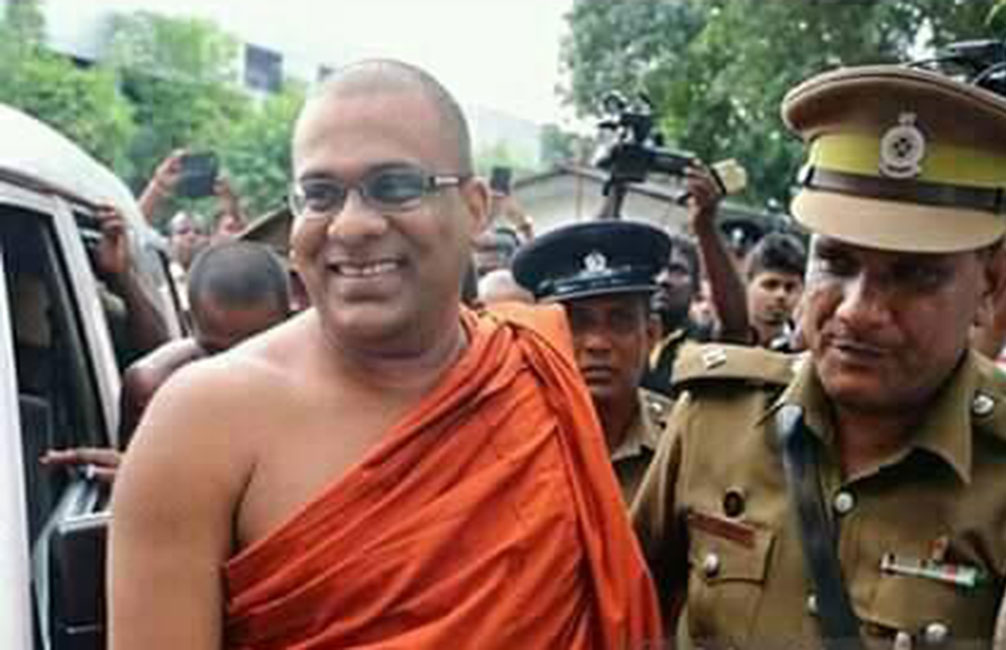
Gnanasara thero to be pardoned by President
The General Secretary of the Bodu Bala Sena (BBS) Venerable Galagoda Aththe Gnanasara thero has been granted a pardon by President Maithripala Sirisena.
Executive Director of the BBS, Dilanthe Withanage also confirmed the presidential pardon on his Facebook profile.
It was reported that the Department of Prisons had sent a report with details pertaining to Gnanasara thero to the Presidential Secretariat yesterday.
The President's Office had requested a detailed report including details on his behaviour in prison.
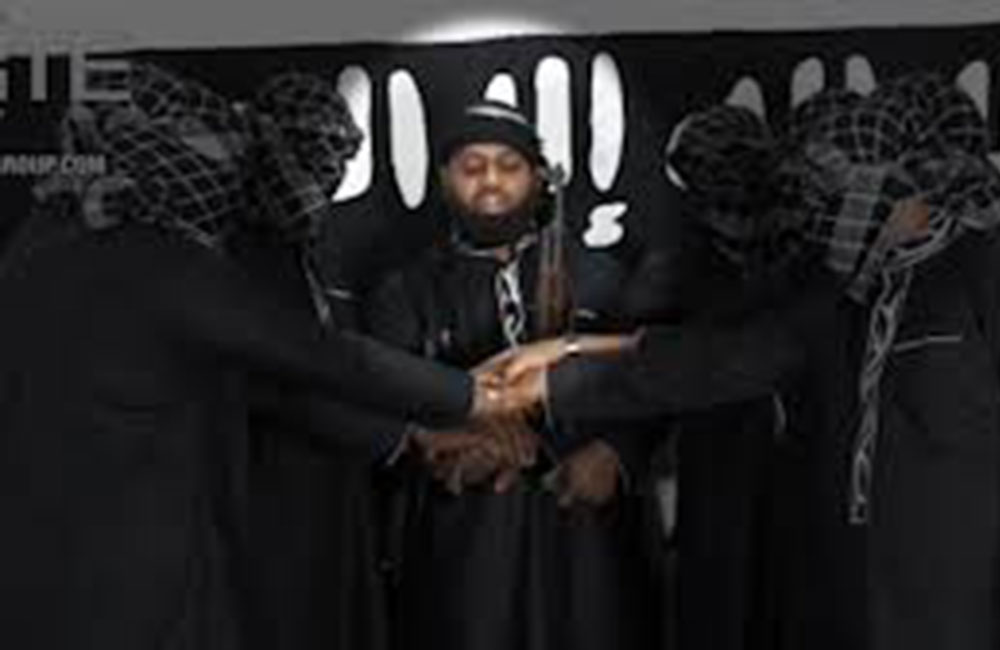
DNA tests confirm Zahran died in Shangri-La bombing
DNA testing has confirmed that Zahran Hashim, the alleged mastermind behind the Easter Sunday attacks was killed at the Shangri-La hotel in Colombo.
Hashim, the leader of the National Thowheed Jama’ath (NTJ), was one of two suicide bombers that died during the attack on the luxury beachfront hotel on Easter Sunday.
The Government Analyst’s Department said that they had compared the DNA samples of Hashim and his daughter. Investigations were also carried out for several days using the DNA samples of Zahran Hashim’s wife and his sister.
The DNA report will be handed over to the Criminal Investigation Department (CID) today, the Government Analyst's Department said.
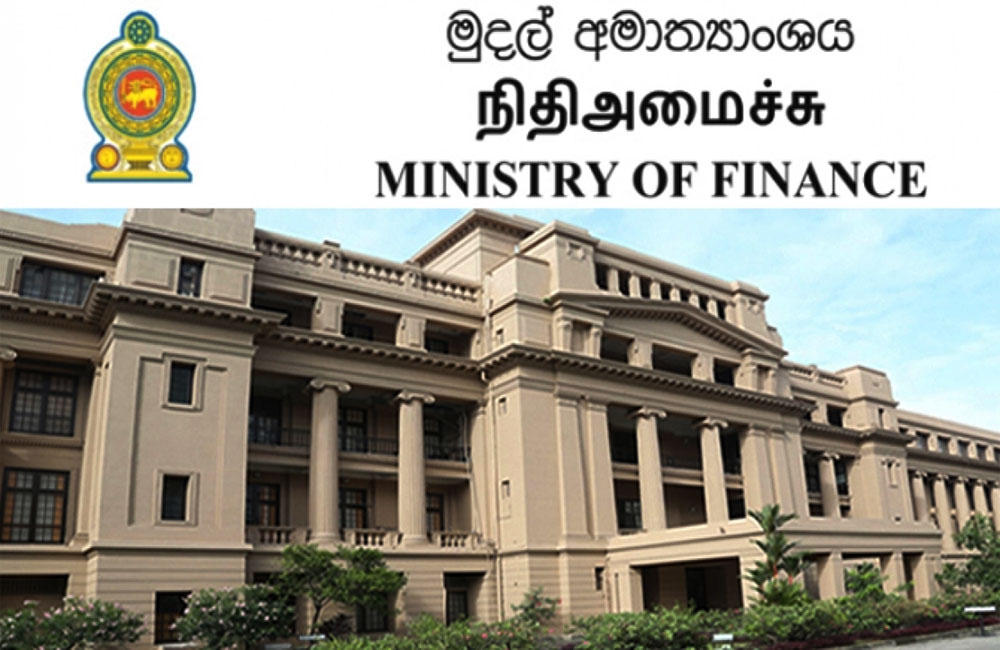
Rs. 2500 special allowance for public sector from July 01
As announced by the Minister of Finance at the Budget – 2019, all public sector employees will be paid a special interim monthly allowance of Rs. 2500 effective from July 01, 2019.
A circular in this regard has already been issued by the Ministry of Public Administration and Disaster Management with the consent of the Treasury to all Secretaries to Ministries, Chief Provincial Secretaries and the Heads of Departments, the Ministry of Finance said in a statement today.
A Finance Ministry spokesperson said that this new interim allowance will be in addition to the cost of living allowance of Rs 7800.00 that will be continued in the future.
As a result of this, the monthly salary of a lower grade government employee will increase from Rs. 11,730 in 2015 to Rs. 21,400 by 2020.
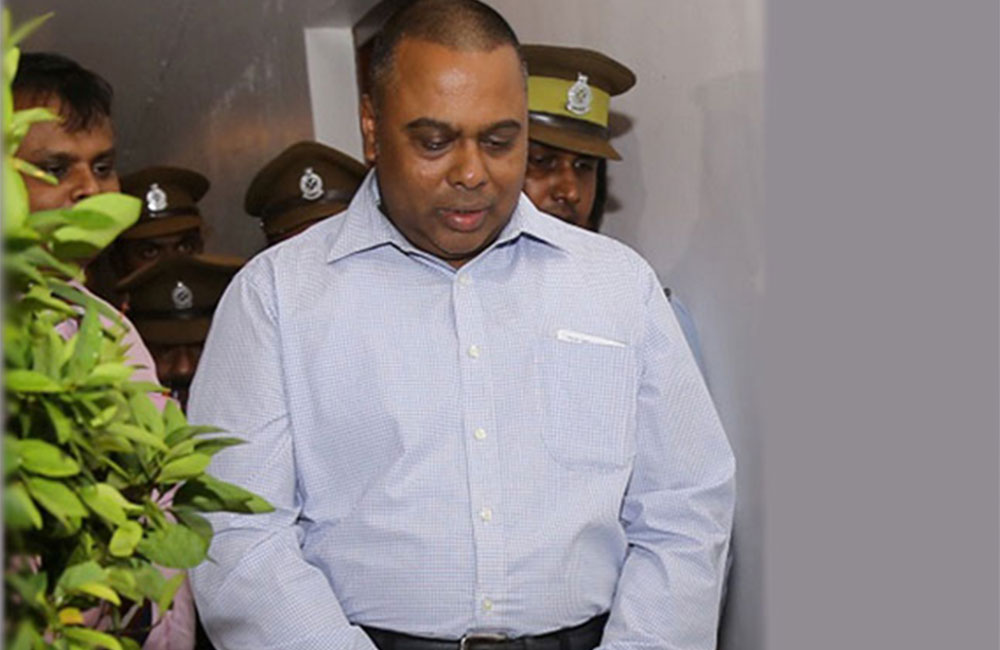
Alleged assassination plot: Former DIG released on bail
Former DIG of the Terrorist Investigation Division (TID), Nalaka de Silva who was taken into custody over an alleged VVIP assassination plot, was released on bail today (21).
Mr. De Silva was released on bail during a hearing before Fort Magistrate Lanka Jayaratne this afternoon after imposing a cash bail of Rs 25,000 and two surety bails worth Rs 500,000 each. The Magistrate also imposed a travel ban on the former DIG.
The former TID chief was arrested in October 2018 and was in remand custody since over an alleged conspiracy to assassinate President Maithripala Sirisena as well as the former Secretary to the Ministry of Defence.

Weligama Mayor Rehan suspended for criticizing UNP leadership
The United National Party (UNP) has decided to suspend the party membership of Rehan Jayawickrama for issuing statements critical of the party leadership.
Jayawickrama, who is the Mayor of Weligama, wrote to Prime Minister Ranil Wickremesinghe last Tuesday (14) requesting a change in the leadership of the grand old party. In his letter, Jayawickrama reiterates that he is only conveying the demands of the party and its supporters.
UNP General Secretary and Minister of Education Akila Viraj Kariyawasam said Jayawickrama was summoned to Sirikotha last week where a disciplinary inquiry was conducted. It was reported that the Mayor had agreed to refrain from issuing such statements in the future.
However, Jayawickrama has again issued statements to the media criticizing the leadership in violation of party discipline and hence his party membership was suspended according to the articles of the UNP constitution, Kariyawasam said in a letter addressed to Jayawickrama.
The General Secretary stated that further action will be taken once the matter is taken up at the UNP Working Committee meeting.
A copy of the letter sent by UNP General Secretary to Weligama Mayor is found below.
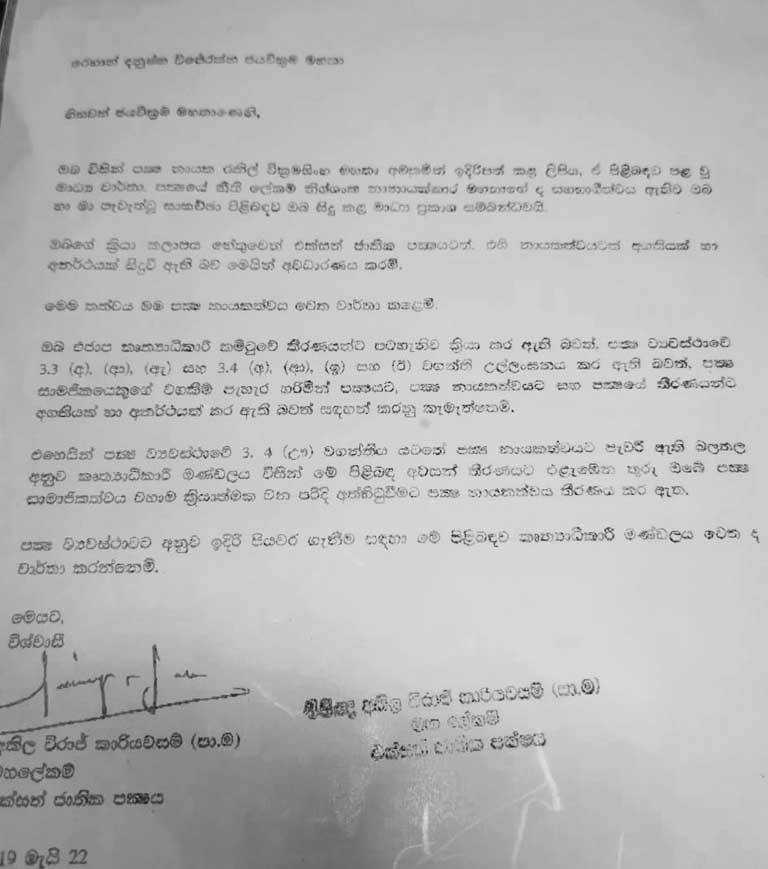
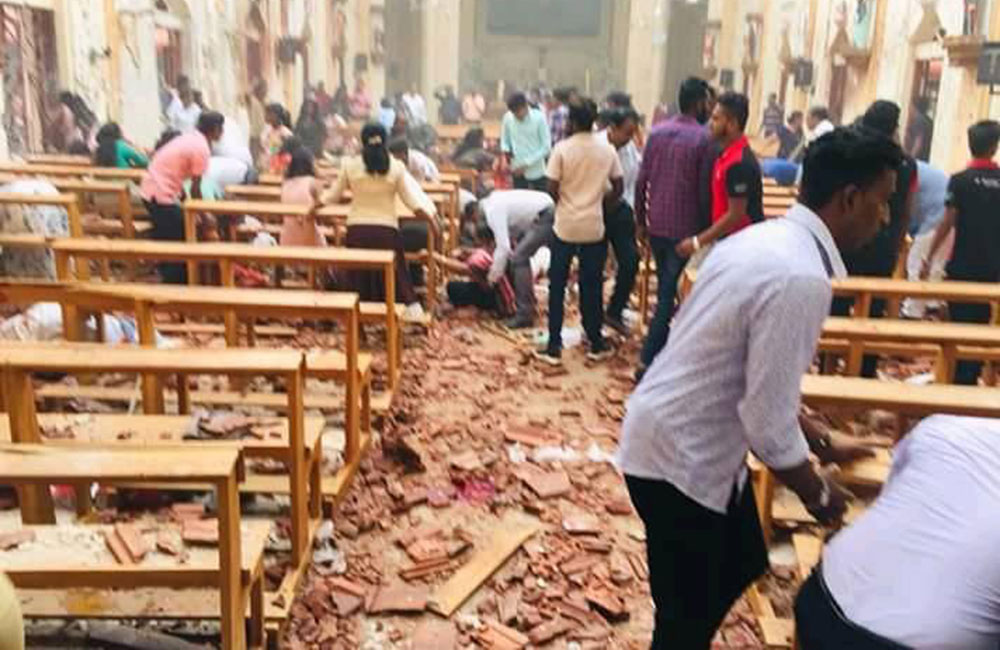
Sri Lanka: Alleged war criminals appointed to lead post Easter Sunday crackdown
Military commanders appointed to lead a highly sensitive operation in the aftermath of the Easter Sunday bombings are alleged war criminals and those who oversaw troops found by the UN to have abused children.
In the second week following a series of coordinated bomb blasts, which struck churches and hotes in Sri Lanka killing more than 250 people, the Army Headquarters announced that all Army, Navy, Air Force and Police areas within the Western Province and the north western Puttalam district have been placed under the newly formed Overall Operational Command (OOC).
They will be in control of the deployment of thousands of troops in Sri Lanka engaged in the search and seizure of homes and buildings, enforcing curfew and patrolling civilian areas.
Major General Sathyapriya Liyanage, named in a UN report for commanding a battalion accused of war crimes during the war against Tamil rebels 10 years ago, functions as the overall operational Commander in the establishment. (JDS Lanka)
Read the full report: The Men Now Patrolling Sri Lanka
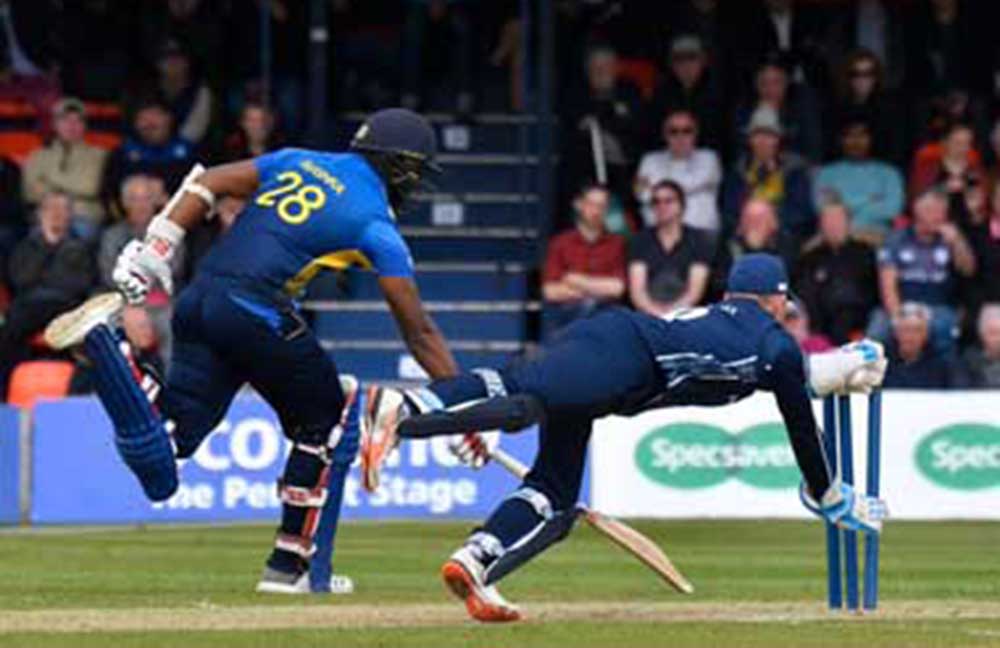
Sri Lanka snap 8-match losing streak with Scotland win
Sri Lanka snapped an eight-match one-day international losing streak ahead of the World Cup with a 35-run win over Scotland in a rain-affected match in Edinburgh on Tuesday.
The Scots may not have qualified for the World Cup but last year beat tournament hosts and favourites England to prove they were well capable of causing an upset.
Saturday's opener had been abandoned without a ball being bowled due to rain, but the teams had better luck with the weather second time.
Dimuth Karunaratne, the new Sri Lanka captain top-scored with 77 in a total of 322 for eight -- just his second fifty at this level and first since he reached the landmark against Scotland on the same ground back in 2011.
It was one of three fifties on the innings, including opening partner Avishka Fernando's maiden ODI half-century.
But both batsmen men dropped off Brad Wheal, Karunaratne at first slip on 13 and Avishka on 22 at mid-off.
Karunaratne received a third life on 36 when Calum MacLeod couldn't hang on to a sharp chance at midwicket off left-arm spinner Mark Watt.
Sri Lanka pace bowler Nuwan Pradeep then took four wickets as Scotland slumped either side of being set a rain-revised target of 235, needing 103 off seven overs, and were bowled out for 199.
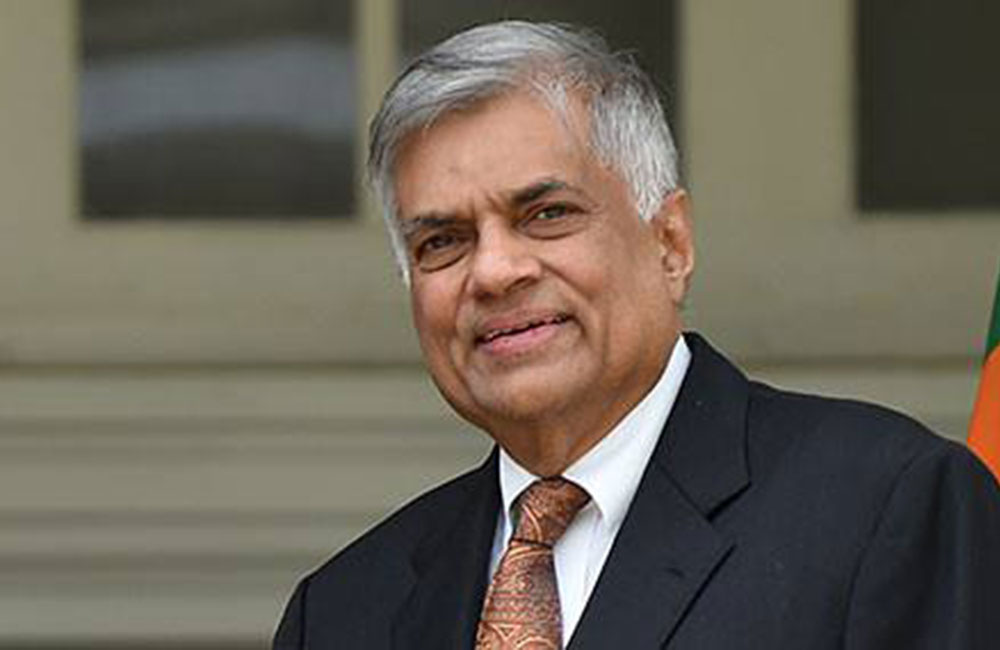
Court of Appeal dismisses case against Prime Minister
The Court of Appeal dismissed a writ application seeking a Writ of Quo Warranto against Prime Minister Ranil Wickremesinghe today.
Petitioner Sharmila Gonawala, a Colombo Municipal Council member of the Sri Lanka Podujana Peramuna (SLPP) and Co-President of the Women's Organization for Justice, filed a writ petition in the Court of Appeal, seeking an order in the nature of a Writ of Quo Warranto declaring that UNP leader Ranil Wickremesinghe is disqualified to be a Member of Parliament and thus the appointment of Ranil Wickremesinghe as a member of Parliament void and that he has no right to continue to hold office as a member of Parliament.
However, the bench comprising Justices Shiran Gunaratne and Priyantha Fernando upheld the preliminary objections raised on the maintainability of the Writ of Quo Warranto application against Prime Minister Wickremesinghe and dismissed the petition.
K Kanag-Isvaran PC appeared for the Premier while Suren Fernando appeared for the UNP General Secretary. Uditha Egalahewa PC appeared for the petitioner.
Page 316 of 510